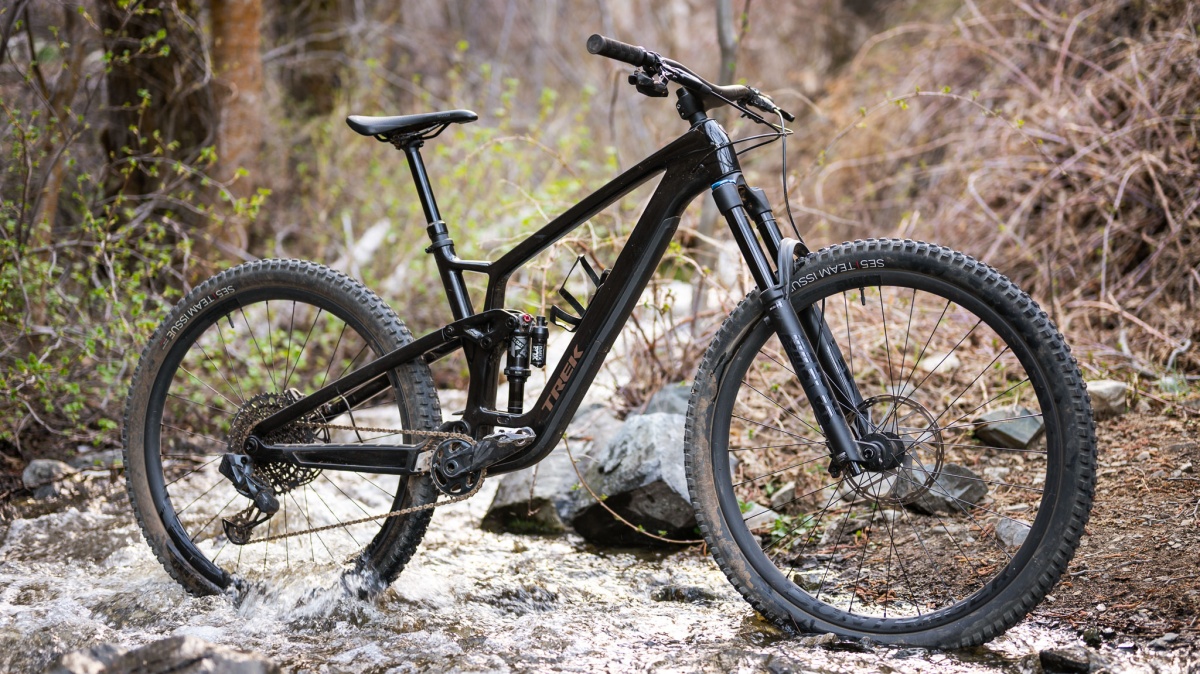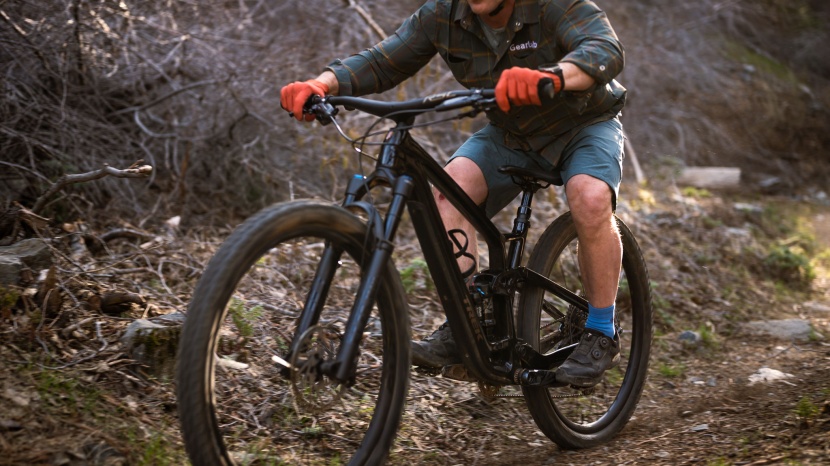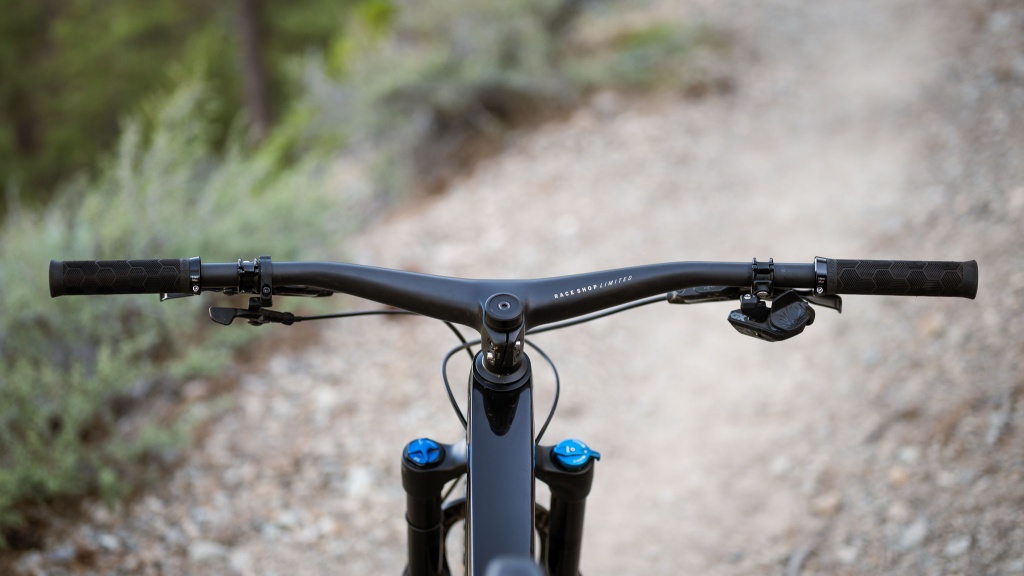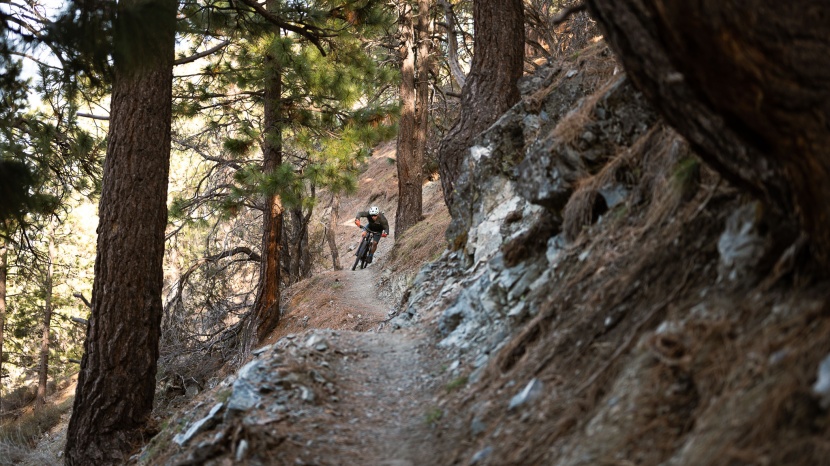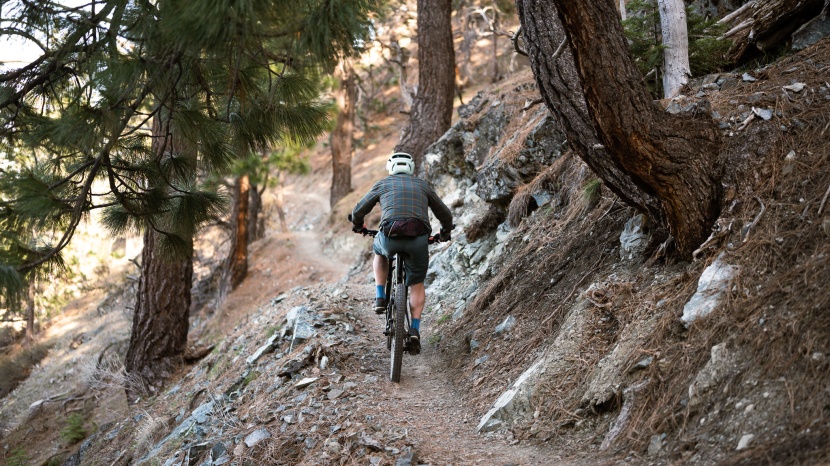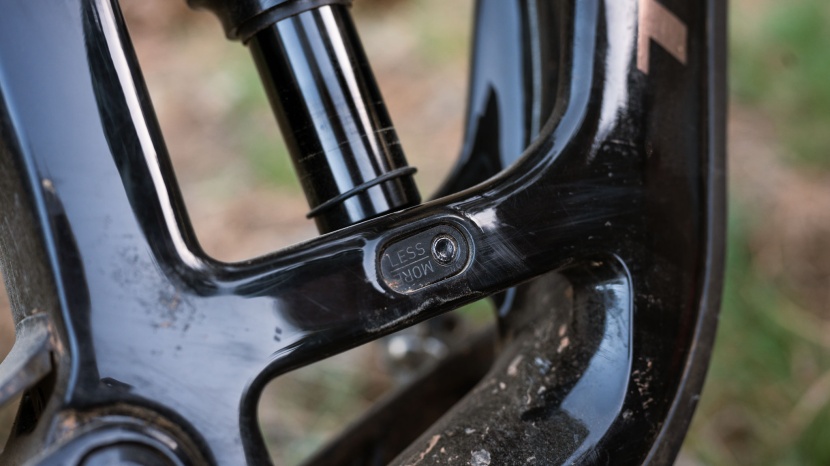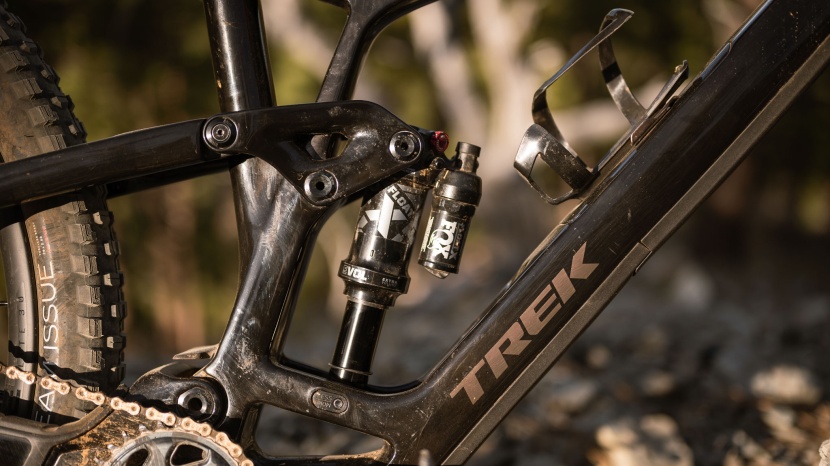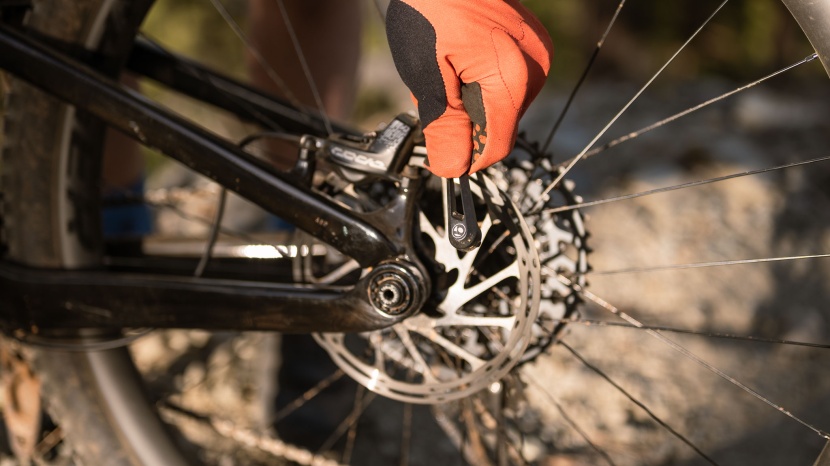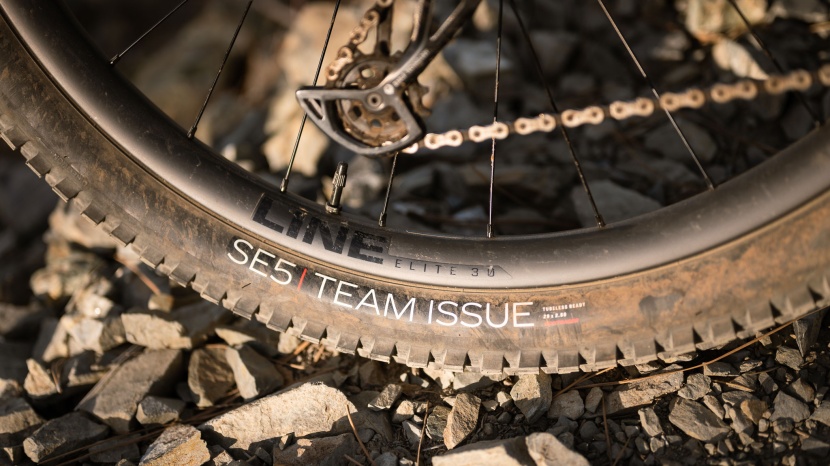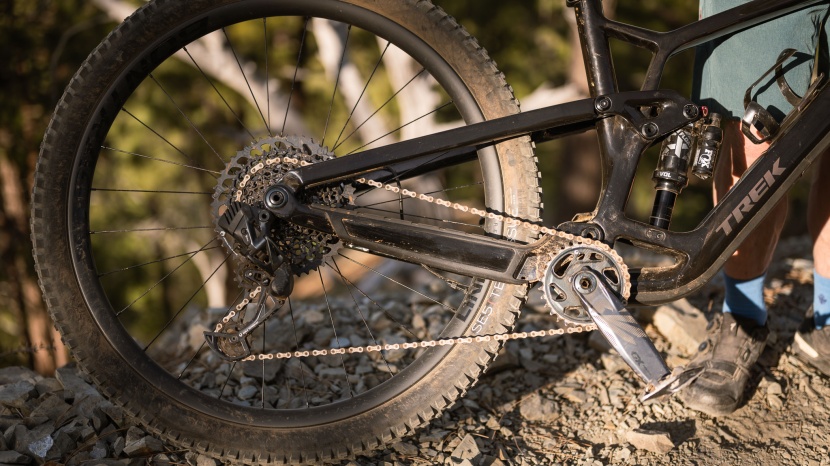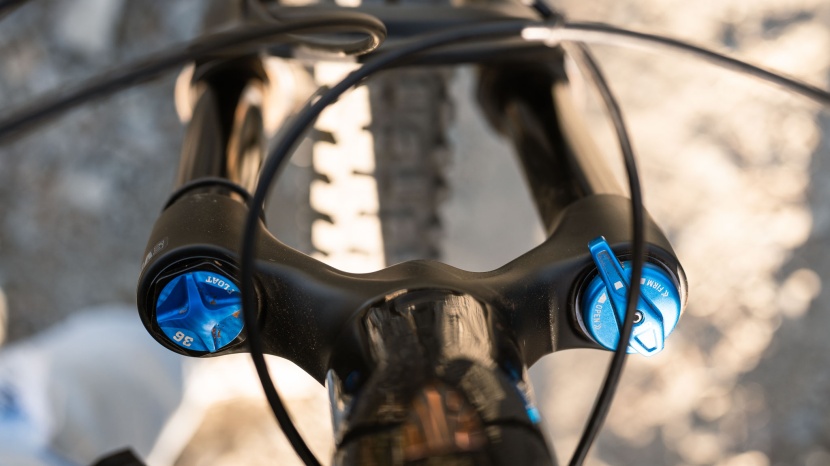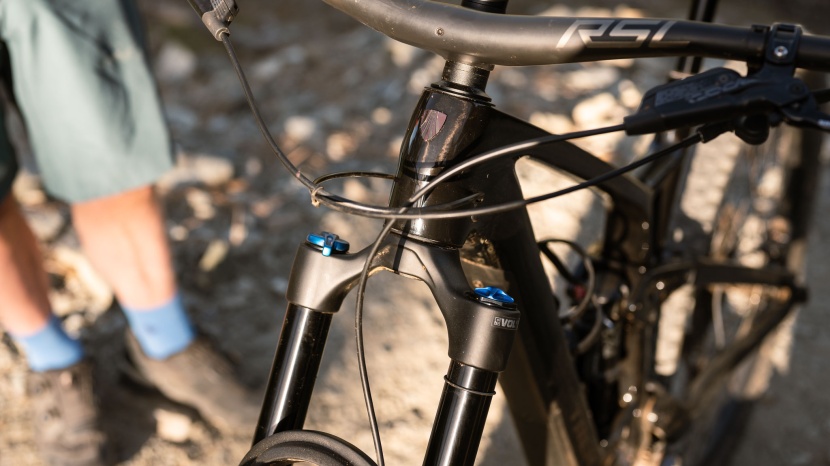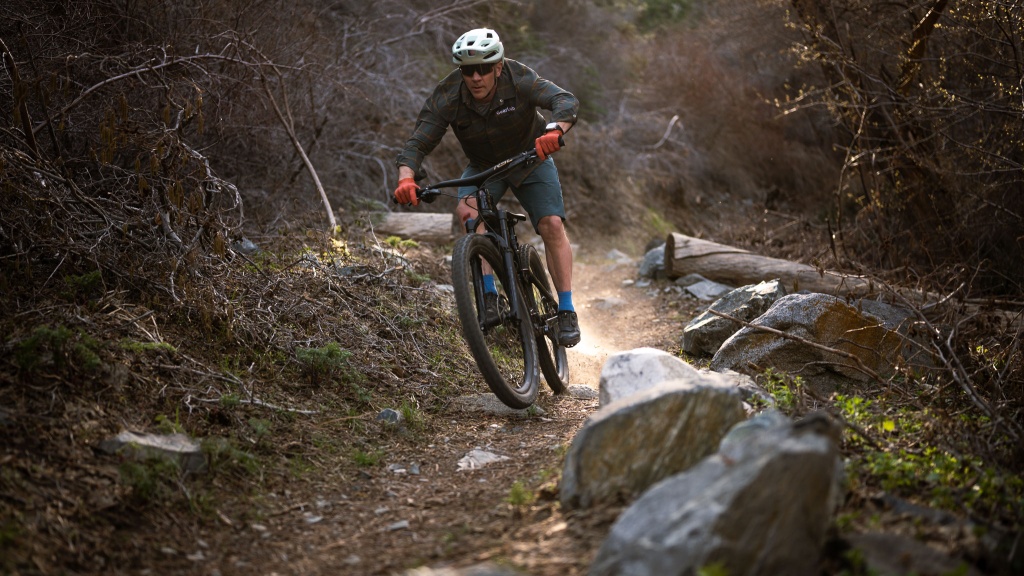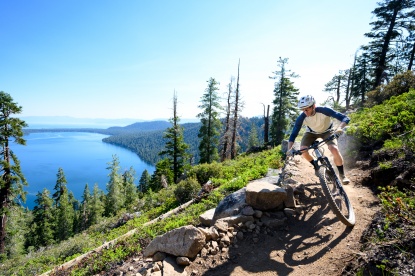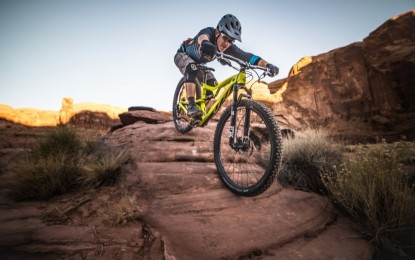
Our Verdict
Our Analysis and Test Results
Should I Buy This Bike?
Trek has often built bikes that were a touch conservative for your author's primary bikes, especially in the trail category. The new Fuel throws that out the window; while the previous version felt like a fine bicycle, it didn't have the swagger of a true, modern trail bike. The new model nails the geometry and then allows for rider adjustments in both directions. This 140mm travel carbon trail bike is down for anything with a highly adjustable geometry, allowing the rider to dramatically alter the bike's personality for different terrain or riding. The head tube angle can be adjusted in six .5 degree increments between 63.5 to 66 degrees using the Mino Link and swappable headset cups (available separately). You can ride this bike as a versatile long-legged trail bike or slack it even further (62.9 degrees!) with a 27.5" mullet rear wheel. The versatility built into this bike won't future-proof it, but it certainly readies it for an immense selection of trails.
This bike lights up at speed; it charges the climbs, shreds the descents, and the ABP does a fantastic job keeping the rear wheel on the ground and engaged. The ride quality is fantastic in its stock geometry configuration, and its adjustability gives it so much versatility. The new Gen 6 frame looks burly, featuring in-frame storage, sturdy frame protection, size-specific chainstays, and a 34.9-seat tube. Our tested build features GX AXS, Bontrager carbon wheels, and Fox Performance suspension. It's clear that Trek sweated the details of the frames and the builds; the Integrated bar/stem combo is stiff and cool looking but loses all sweep/rise and stem length adjustability.
This bike has striking similarities to the Specialized Stumpjumper EVO with its geometry, adjustability, frame storage, and mullet-ability. Even the ride quality is similar between the two, what the Fuel EX 9.8 does better is keep the rear wheel on the ground, especially through rocky technical sections where you might tap the brakes. The ABP system works to isolate suspension forces from braking forces and does so effectively. We've become accustomed to “skittering” in technical braking situations that the ABP all but eliminates. Having more control over the descents makes this bike feel more composed. While we're pleased to see more bikes offering in-frame storage, its implementation on the Fuel isn't without fault. The opening is smaller than others, preventing us from stashing as many items in the downtube. Trek gives instructions on how to fold a tube, inflator, and CO2 cartridge inside the included Bontrager BITS internal frame storage bag, and it works if you follow their directions carefully. Trying to fit additional items or not folding the tube as shown results in failure. The Fuel EX 9.8 isn't exactly light; our size large test model weighed in at 32 lbs 9 ounces, even with its costly build. Does it matter? There's an adage around bike geeks that “A good bike weighs what it ought to,” which certainly feels like the case here. This bike is also longer than almost any other trail bike we've tested, with a wheelbase of 1250mm. While that made tight switchbacks more challenging, it didn't feel like it negatively affected its handling and certainly contributed to its stability and confidence at speed. If you want a versatile trail slayer that won't leave you feeling held back, check out the Gen 6 Fuel lineup.
Frame Design
The Trek Fuel EX has been around for many years, and the latest version is referred to as the Gen 6 to denote the model's 6th generation. The Fuel EX has been completely redesigned and looks nothing like its predecessor, the Gen 5. First and foremost, travel is increased by 10mm at both ends to 150mm in front and 140mm in the rear. We tested the 9.8 GX AXS built around a full OCLV carbon frame that uses Trek's typical Active Braking Pivot or ABP suspension design. ABP is essentially a four-bar design with the main pivot attached just above the bottom bracket and a magnesium rocker link attached mid-way up the seat tube to compress a vertically oriented shock. ABP sets itself apart from other designs with a pivot point around the rear axle, which allows the suspension to move more freely while the brakes are applied. The lower shock mount spans two bridges between the down and seat tubes, and it has a flip chip to adjust the progressivity between less and more, giving it coil shock compatibility. In addition to having a dramatically different silhouette than previous versions of the Fuel EX, the Gen 6 also has in-tube internal cable routing (although the brake line runs externally along the chainstay). It has a large full-length down tube cover to protect it from trail debris and shuttle damage, along with the typical molded chainstay protection. The carbon and aluminum frames have internal frame storage and include a Bontrager BITS padded tool sleeve. The frame storage door also has a set of bottle bosses and a Bontrager bottle cage attached. Keen-eyed observers will also notice that the shape of the downtube no longer requires a knock-block headset, a very welcome change.
Geometry is one of the biggest things that sets the Gen 6 apart from the previous version of the Fuel EX, and Trek went all in to bring it in line with modern geometry and make it one of the most adjustable models on the market. Not surprisingly, it is longer and slacker with a modern 485mm reach on our size Large that goes along with a 64.5/65.1-degree head tube angle in the low/high Mino Link settings, respectively. Trek has given the Fuel EX size-specific chainstays starting at 435mm for XS-M frames, topping out at 450mm for XXL, with 440mm on our Large. Effective seat tube angles vary slightly between sizes and geometry settings but are relatively steep in the 77+ degree range. The bottom bracket sits fairly low at 335mm with 38mm of drop in the low/neutral setting, and flipping the Mino Link to high raises it by 8mm. M-XXL frames come with 29-inch wheels, XS comes with 27.5-inch wheels, and S frames are available with either. It's also mullet compatible with the Mino Link in High when run with a 160mm fork.
Design Highlights
-Comes in OCLV carbon fiber and aluminum frames
-29-inch wheels (sizes M-XL), 27.5-inch wheels (size XS), 29 or 27.5 (size S)
-Mixed wheel/Mullet compatible with 160mm fork
-Size-specific chainstays
-Adjustable geometry with Mino-Link flip chips
-Adjustable geometry with swappable head cups (not included)
-Adjustable suspension progressivity, compatible with coil shocks
-Internal frame storage with BITS bag
-Threaded bottom bracket
-Comes in seven frame sizes
-Frame protection armor
-Great suspension set up guide on the Trek website
Downhill Performance
We've thus far highlighted its versatility, but the new Fuel Ex is a monster on the descent. 140mm of ABP rear-wheel travel does a phenomenal job of keeping the rear wheel engaged. The suspension design eats up chop and chunder while remaining confident in the drops. The redesigned frame is so much burlier and more aggressive; you can push this bike so hard you'll forget it's a mid-travel trail bike.
It comes alive at speed, inspiring confidence in rough and steep terrain. Adjustable geometry is a clear highlight, allowing the rider to set the bike up with a tremendous variety in personality and capability. This Fuel could be a park bike as easily as an all-day trail ride. Fox Performance suspension didn't give us access to separate dampening adjustments, but the suspension didn't generate complaints from any of our testers.
Uphill Performance
The new Fuel climbs incredibly well! Though muscular and somewhat heavy, its pedal platform is stable and supportive while efficiently transferring power. The bike sits high in its travel while climbing, offering very little squat, which helps the bike retain snappy handling despite the slack head tube. The carbon wheels featuring 108-point engagements are a pleasure to spin up. Ratcheting through a rock garden brings almost instant power transfer, leaving the bike lurching for more ground. The effective seat tube angle pushes 76.9 to 77.9 degrees, depending on your Mino Link and headset settings. As with most modern trail bikes, this steep angle leaves you ready to drop some quad power on the climbs.
Being directly over the cranks on this bike, you feel the lack of lateral flex as you grind out the climbs, especially out of the saddle. The front end of this bike is big; sitting atop the Performance 36 is a gorgeous 820mm bar with an effective stem length of 45mm. We're not sold on the merits of combining these components, but we never felt the need to adjust the sweep or rise and had no complaints about its performance. The bottom bracket height is almost worryingly low in the bike's lowest setting, yet we kept the pedals off the ground thanks to the suspension's anti-squat traits.
Photo Tour
Value
Mountain bikes are expensive, and nice mountain bikes are very expensive but also very enjoyable to ride. The GX AXS build we tested sells for $5999 with Fox Performance suspension. Our test bike was equipped with carbon wheels, a rapid engagement free hub, one piece bar / stem, and heroic tires. Some of the parts might not shine on a shelf by themselves, but there was nothing on this bike that we felt like replacing. This bike is priced competitively with today's top trail bikes; whether it's a good value or not is a bit subjective. If this bike doesn't feel like a great value to you, Trek offers an aluminum version of the new Fuel for less than half the price of this bike.
Conclusion
Previous generations of the Trek Fuel never quite scratched that trail itch for us, but this bike may have found the secret sauce. A longer-legged daily driver with swagger and adjustability, it's not too burly or squatty to crush the climbs. Its playfulness and descending prowess bring confidence and traction everywhere we want it. The lively feel and super active rear end keep the rear tire on the ground instead of skittering through the choppy stuff. With its versatility and adjustability, this will be a bike to ride for years to come.


